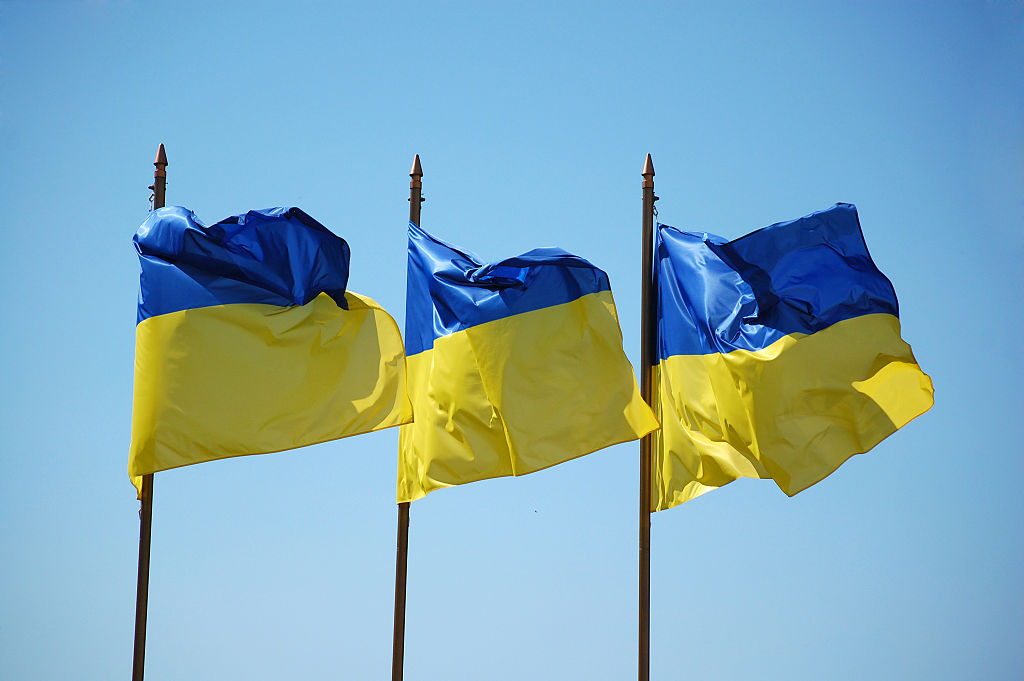Russia continues to suffer humiliation in both Ukraine and the global arena. The Russian military cannot protect its ammunition depots from Ukrainian attacks, while the Kremlin keeps demonstrating its political impotence and incompetence in international relations.
Ever since the United States announced that it would supply Ukraine with High Mobility Artillery Rocket Systems (HIMARS), Moscow started imposing empty threats on Kyiv. To this day, however, Russia has not struck the so-called decision-making centers in the Ukrainian capital, even though Ukrainian Armed Forces destroyed crucial infrastructure facilities not just in the Russian-controlled southeast of the country, but also in the Western Russian cities of Kursk, Bryansk and Belgorod.
Now that the Ukrainian Army is actively using HIMARS, Russia has a hard time protecting its ammunition depots. Ukraine has already hit more than a dozen ammunition storage facilities in the Donetsk, Lugansk, Kherson and Zaporizhzhia regions. The Russian military does not seem to know how to cope with the American-made artillery that the Ukrainian Armed Forces continue to receive.
Although HIMARS may not be a game changer in the Ukraine war, they will almost certainly significantly slow down Russia’s offensive in the Donbass. It will also allow the Ukrainian Armed Forces to prepare for the upcoming counteroffensive in the south of the country. The Kremlin, for its part, is expected to additionally help Ukraine to restore its sovereignty over portions of the Kherson and Zaporizhzhia regions.
On July 11, Turkey’s President Recep Tayyip Erdog told his Russian counterpart Vladimir Putin that it was time to act on a United Nations plan to set up a sea corridor for Ukrainian grain exports through the Black Sea. Two days later, representatives of Russia, Ukraine and Turkey reached a deal aimed at resuming Ukrainian grain exports. According to the agreement, Turkey, with the support of the United Nations, will “inspect the ships involved in the transportation of grains to exclude weapons smuggling.” After Russian forces, “as a gesture of good will”, withdrew from Snake Island on June 13, Moscow lost the significant leverage it had over Kyiv. Now it will be Turkey, rather than Russia, that will “inspect the ships” in the Black Sea.
Given that Turkey is a NATO member, and is actively selling Bayraktar drones to Ukraine, it is almost certain that Ankara will “turn a blind eye” to potential weapons smuggling into the Eastern European country. Thus, the Kremlin has de facto enabled Kyiv to receive more Western weapons.
The West is supplying Ukraine with modern artillery systems, drones, ammunition, and military vehicles through Poland, Slovakia and Moldova. Russia has never even attempted to prevent it. Moreover, to this day the Kremlin has not destroyed a single bridge on the Dniepr River, which means that Ukraine continues to freely supply weapons to its troops in the southeast of the country. As a result, Russia has not achieved any of its military and political goals in the former Soviet republic.
Five months after Moscow launched the invasion of Ukraine, it remains unclear what its true ambitions in the Eastern European nation are. During the first stage of the so-called special military operation, Russia attempted to seize Kyiv, and install a pro-Russian puppet government there. However, on March 1, the Kremlin spokesman Dmitry Peskov said that Russia “continues to see Volodymyr Zelensky as the legitimate president of Ukraine”, which indicated that Moscow might have given up on its initial plans to force a regime-change in Kyiv. Still, on July 12, Peskov stressed that “the Russian special operation is directed against the Kyiv regime, not the Ukrainian people”.
Does that mean that Moscow does not see Zelensky as the legitimate president of Ukraine anymore? If so, why did Russia reach a deal with the “Kyiv regime” on the grain exports?
Russia has once again demonstrated impotence in the international arena
Indeed, schizophrenia seems to have become the integral part of the Russian foreign policy. The Kremlin demanded on several occasions that the sanctions imposed on the Russian Federation for the war in Ukraine be lifted in exchange for lifting the blockade of Ukrainian ports. The West, quite aware of Russia’s extremely weak position, never intended to end sanctions, but rather to impose new ones. On June 18, European Union member Lithuania prohibited the transit of coal, metals, electronics, and construction materials via the rail link to the Russian semi-exclave of Kaliningrad. Moscow threatened to retaliate, but given that its threat proved to be empty rhetoric, Vilnius continued expanding restrictions. In other words, Russia has once again demonstrated impotence in the international arena.
Militarily, unless the United States stops providing weapons to Ukraine, Russia is unlikely to be able to defeat the Ukrainian Armed Forces. Quite aware that the Russian military is inferior to the Ukrainian army when it comes to combat drones, the Kremlin is allegedly seeking to purchase unmanned aerial vehicles from Iran. In March, Moscow reportedly sought help from China, but Beijing did not provide any military assistance to Russia. Given that the Kremlin “betrayed” Iran several times, and refused to sell S-300 and S-400 missile systems to Tehran, it is not surprising that the Islamic Republic ruled out selling drones to Moscow.
Russia is, therefore, on its own in Ukraine. Its incompetent and corrupt leadership has turned the Russian Federation into a pariah state. As such, it will continue suffering humiliation and defeats for a very long time.
Image: Vladimir Yaitskiy

